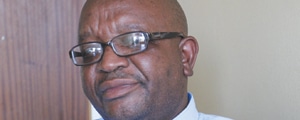
South Africa is Sub-Saharan Africa, indeed all of Africa’s biggest economy.
Painona with Tapiwa Nyandoro
Gill Marcus is the Governor of the South African Reserve Bank. So when she speaks, we should listen. She has been distraught of late. The economy in South Africa is not performing. She partly blames labour unrest, particularly in the mining sector.
She also blames the European Union for its now never-ending financial crisis, which negatively affects imports from South Africa. Another part of the blame goes to slowing manufacturing and economic growth in China, traditionally the largest buyer of minerals from the Republic.
She is, however, coy, diplomatic and quiet on the lack of visionary and transformational leadership in Sub-Saharan Africa. It is left to a visiting American President to sound the alarm.
When asked whether the US is not afraid of Chinese competition for investment and markets in Africa, the great man said he “welcomes everybody playing in Africa”.
He cautions, as Al Jazeera reports, that Sub-Sahara’s reliance on piling resources high and selling them cheap is not a “sustainable model over the long term”.
For good measure, he added: “You produce the raw materials, sold cheap and then all the way up the (value) chain somebody else is making the money, creating the jobs and the value (addition)”. He admonished: “Make sure that whoever you are dealing with . . . you are getting a good deal that’s benefiting the people here, that can spur broad-based development.” Diplomatic etiquette possibly prevented him from being more explicit, but were Africa’s leaders even listening?
- Chamisa under fire over US$120K donation
- Mavhunga puts DeMbare into Chibuku quarterfinals
- Pension funds bet on Cabora Bassa oilfields
- Councils defy govt fire tender directive
Keep Reading
With 875 million people, half of whom may be in the Sadc/Comesa bloc and all the natural resources other countries can only covet, Sub-Saharan Africa should not be overly dependent on the growth of economic activity in the US, Europe and China.
It should, in fact, be the other way round, as indeed is hoped for by the rest of the world, China and Europe included. Africa has the largest unmet gap for economic development in infrastructure and social services.
In land, people and minerals, it has the resources to sustain robust economic growth. It should not be shipping out jobs and resources by the bucketload that Africa itself needs.
Double-digit economic growth that creates double-digit job creation requires that the usually laid-back African leadership take heed of the American President’s concerns.
Sadc’s problems need a grand political solution. Sadc needs its own George Washington, willing to do whatever is necessary to unite the small Sadc/Comesa states into a federation. We need to move from the “Maoist” era of slogans and land reforms that has gripped Zimbabwe and South Africa into a Deng Xiaoping era of economic reforms and enhanced foreign direct investment and trade, taking advantage of a large population bloc — a large market.
The economist who coined the acronym Bric (Brazil, Russia, India and China group) felt South Africa was not a suitable candidate for the grouping poised for rapid economic growth because its population was just too small. He was right. And it is this aspect that needs urgent correction.
The most important resource Africa has is its people. Human and social capital is what makes and what made other nations great. As general elections beckon in Zimbabwe this year and in South Africa the following year, it is time for Sadc to take a look at itself, time for deep introspection.
Sadc/Comesa need a departure for a moment from looking at others for solutions or for scapegoats in the blame game on poor economic growth.
When Sadc/Comesa looks to the East, it should be for ideas on how to lift Africa’s masses from poverty, from scorn and contempt, from fear and uncertainty, from indignity and hunger, indeed from shame and daily humiliation.
I will say it again: Africa’s other great asset, apart from the one between the ears of its populace, is its huge and hungry population — that is its market. It is ready for developing, ripe for the picking.
All it takes is organisational skills and foresight amongst the regional political leadership. Talk of leaving Sadc is, thus, extremely scary and retrogressive.
One step forward for Sadc and Comesa is the creation of genuine common market by getting rid of the artificial borders that the European colonisation of Africa cursed us with.
The congestion at Chirundu and Beitbridge border posts speaks volumes of our collective corrupt tendencies, lack of seriousness and organisational skills. A common customs union and common coast guard and border control unit is long overdue.
The second step forward is common currency and banking union to encourage the flow of cheap money and reduce intra-region transactions costs, whilst increasing intra-region trade. A robust common legal system will then ensure a reduction in regional risk and improve the region’s investment climate so necessary for attracting funding.
Capitalism afterwards will take care of the rest. Let us turn the newly installed “s” in Brics from South Africa to Southern Africa.











